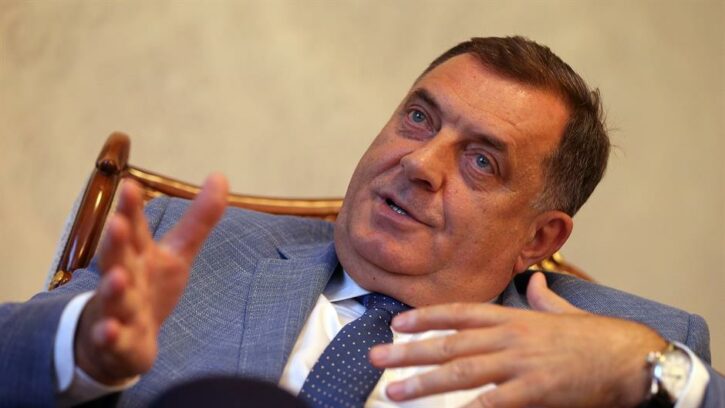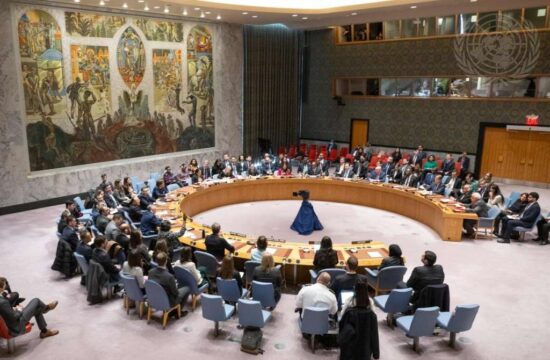
Outgoing President of Bosnia’s Republika Srpska (RS) entity and the newly elected Serb member to the state tripartite Presidency, Milorad Dodik, will meet Bosnian Croat leader, Dragan Covic, on Monday to discuss a possibility of their future cooperation.
Dodik, also the leader of the Alliance of Independent Social Democrats (SNSD) was elected in the October 7 general election to represent the Serb people in the Bosnia’s state Presidency.
His potential political partner, Dragan Covic, the leader of the Croat Democratic Union (HDZ BiH), lost to a social-democrat, Zeljko Komsic, in the race for the post of the Croat Presidency member. However, Covic’s HDZ BiH won a considerable number of seats in the parliaments at all level of authority which provided the party with a significant role in post-election talks on the formation of the government.
“SNSD and its coalition partners is an inevitable political factor, not only in RS but at the level of Bosnia and Herzegovina too. In that sense, we need to meet all those who are considered to be political partners in the Federation (FBiH) entity,” stressed Dodik.
Bosnia’s state Presidency consists of three members, each representing three major groups in the country – the Bosniaks, the Serbs and the Croats. The Bosniak and Croat members are elected in the Federation entity, while voters in RS entity elect the Serb member.
According to Dodik, the one who secures a legitimate majority in FBiH should be accepted at the state level too.
“We don’t expect it will be possible to carry out our policies only, there should be a policy that might be in the interest of all at the level of Bosnia and Herzegovina and to the degree where Bosnia and Herzegovina has the right to decide on those policies,” said Dodik.
The newly elected Serb member of Bosnia’s Presidency emphasised he was in favour of a stable political society that means the full responsibility of local factors in political processes and rejection of any foreign interference.
The Presidency of Bosnia and Herzegovina has to be the centre of all political institutional developments in the country and that, as the Constitution said, all bodies serve to the Presidency.
“Bosnia and Herzegovina must reach its essence and that means a union of two entities and three peoples, who hold a full sovereign governance,” he underlined.
Dodik said a possible interference of the international community’s high representative in Bosnia would mean “a failed term of office” and he added he would not like to be a part of that.
The Serb leader was often criticising the authority of High Representative in Bosnia, who was appointed to oversee the implementation of the Dayton Peace Accords (DPA) which ended the 1992-95 war in Bosnia. According to him, the High Rep’s interference in processes in the country was unacceptable.
The new Serb Presidency member expressed dissatisfaction with Bosnia’s diplomatic network abroad, announcing he would propose withdrawal of all current ambassadors and organising a new diplomatic structure.
An inauguration ceremony for the new Presidency members has been scheduled for November 20.




